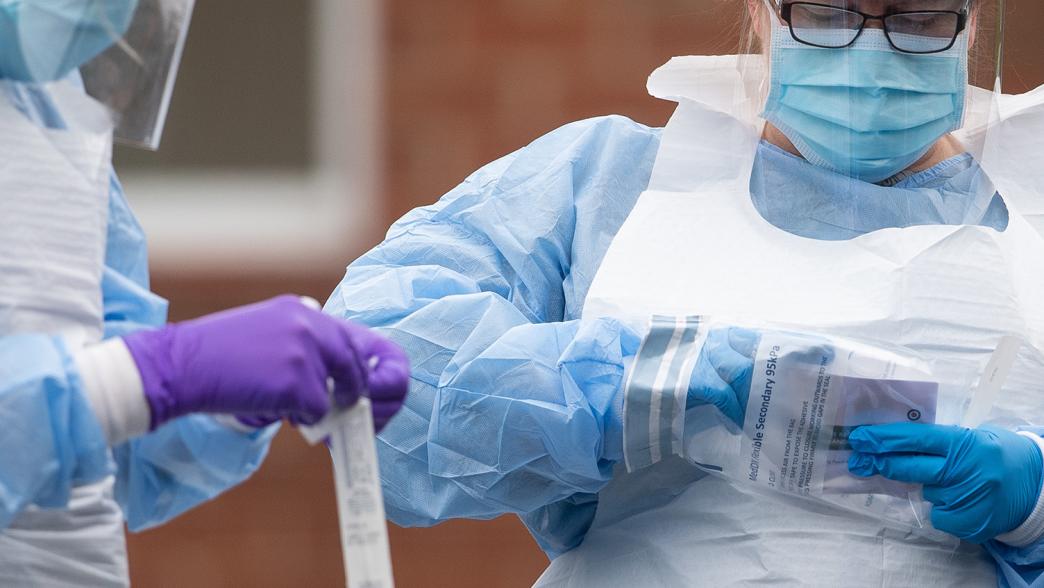'VIP lane' shows urgent need for procurement reform
This week’s data releases on Covid contracts make uncomfortable reading for several senior Conservatives

Amid controversy around money in politics, this week’s data releases on Covid contracts make uncomfortable reading for several senior Conservatives – and show the need for reform to government's procurement practices, says Philip Nye
A year after the National Audit Office (NAO) first raised questions about the government’s process for acquiring personal protective equipment (PPE), details of 50 companies awarded contracts through the government’s high-priority, or 'VIP', lane have been published 10 Department of Health and Social Care, PPE procurement in the early pandemic, November 2021, www.gov.uk/government/news/ppe-procurement-in-the-early-pandemic – but only following a Freedom of Information battle.
The list has provided rich pickings for lobby journalists, with a former chair of the Conservative Party, Lord Feldman, responsible for referring three of the companies, and former health secretary, Matt Hancock, ministers Michael Gove, Grant Shapps and Lord Agnew, and several other Conservative parliamentarians all referring companies. Close attention will be paid to any link between politicians and private interests – at a time when the government is already mired in a scandal over second jobs.
Rather than attempting to withhold information about how public money was spent, the government should improve transparency. It also needs to put in place reforms to ensure it is better prepared to procure goods when they are needed.
The government promised a year ago to address problems with transparency
The NAO has acknowledged the need to act at great speed, but it criticised the government for failing to ensure that adequate paper trails were maintained. It noted a failure to keep records on why particular suppliers were chosen in some cases, as well as a lack of transparency over the contracts that were awarded, and found that companies that went through the high-priority lane were around 10 times as likely to win contracts as those that didn’t – something that has still not been adequately explained.
In responding to the NAO’s report last year, the government reaffirmed its commitment to transparency over Covid contracts – but the manner in which details of the high-priority lane have come into the public domain suggest it has not learnt its lesson. The Department for Health and Social Care (DHSC) resisted the release of the list of companies that won contracts via the high-priority lane – initially claiming that the information should not be made public on commercial grounds. It later reversed its decision, but was found by the Information Commissioner’s Office, the UK’s information watchdog, to have breached its responsibilities under the Freedom of Information Act. The amount of time DHSC took to release the information was “unacceptable”, in the ICO’s words. 11 Information Commissioner's Office, Freedom of Information Act 2000 (FOIA) Decision notice, 18 October 2021, https://ico.org.uk/media/action-weve-taken/decision-notices/2021/4018805/ic-94513-n5h8.pdf
There has been even less clarity over whether a similar high-priority lane existed for Test and Trace contracts, where the Cabinet Office has again been preventing the disclosure of information. As we have long argued, government departments should be proactive in publishing details of how contracts are awarded – as well as improving the speed with which contract details themselves are published.
Robust procurement practices, not ministers' contacts, should be the go-to in emergencies
While the high-priority lane helped the UK acquire PPE at the height of the Covid crisis last year, the government needs to ensure that more robust processes are in place for future emergencies. This means examining assumptions about the risks that government faces, the types and quantity of goods (including medical goods) it will need to respond to them, and its ability to procure those goods when an emergency hits.
Procurement processes should not require a relationship with ministers or other senior decision makers to increase the chances of securing a contract – high-priority lanes should not be used the next time a crisis hits. Rather, there should be more emphasis on building lists of potential suppliers during non-crisis times. At least one country – Chile – makes use of framework contracts for the types of goods and services needed in an emergency, meaning suppliers are pre-approved when a crisis hits. The OECD has also highlighted innovative action taken on procurement by other countries, including South Korea, which introduced measures that allowed companies producing face masks to be paid in as little as four hours after receipt of goods. 12 OECD, Stocktaking report on immediate public procurement and infrastructure responses to COVID-19, www.oecd.org/coronavirus/policy-responses/stocktaking-report-on-immediate-public-procurement-and-infrastructure-responses-to-covid-19-248d0646/ As part of its pandemic response, the government put effort into identifying potential new, UK-based suppliers of PPE, and it should also now consider whether to invest in more long-term supply capacity at home.
The last few weeks have shown that questions about money in politics are not going away. Rather than publishing details of how contracts were awarded 18 months after the fact, the government needs to keep its word on transparency and show it will be better prepared next time.
- Supporting document
- IfG_procurement_WEB_4.pdf (PDF, 2.83 MB) government-transparency.pdf (PDF, 3.11 MB)
- Administration
- Johnson government
- Publisher
- Institute for Government